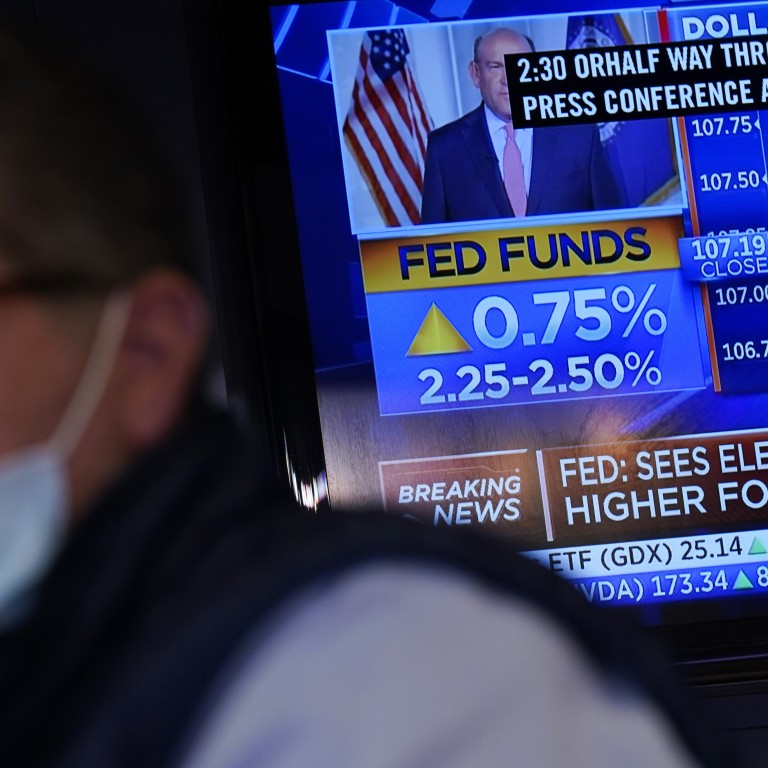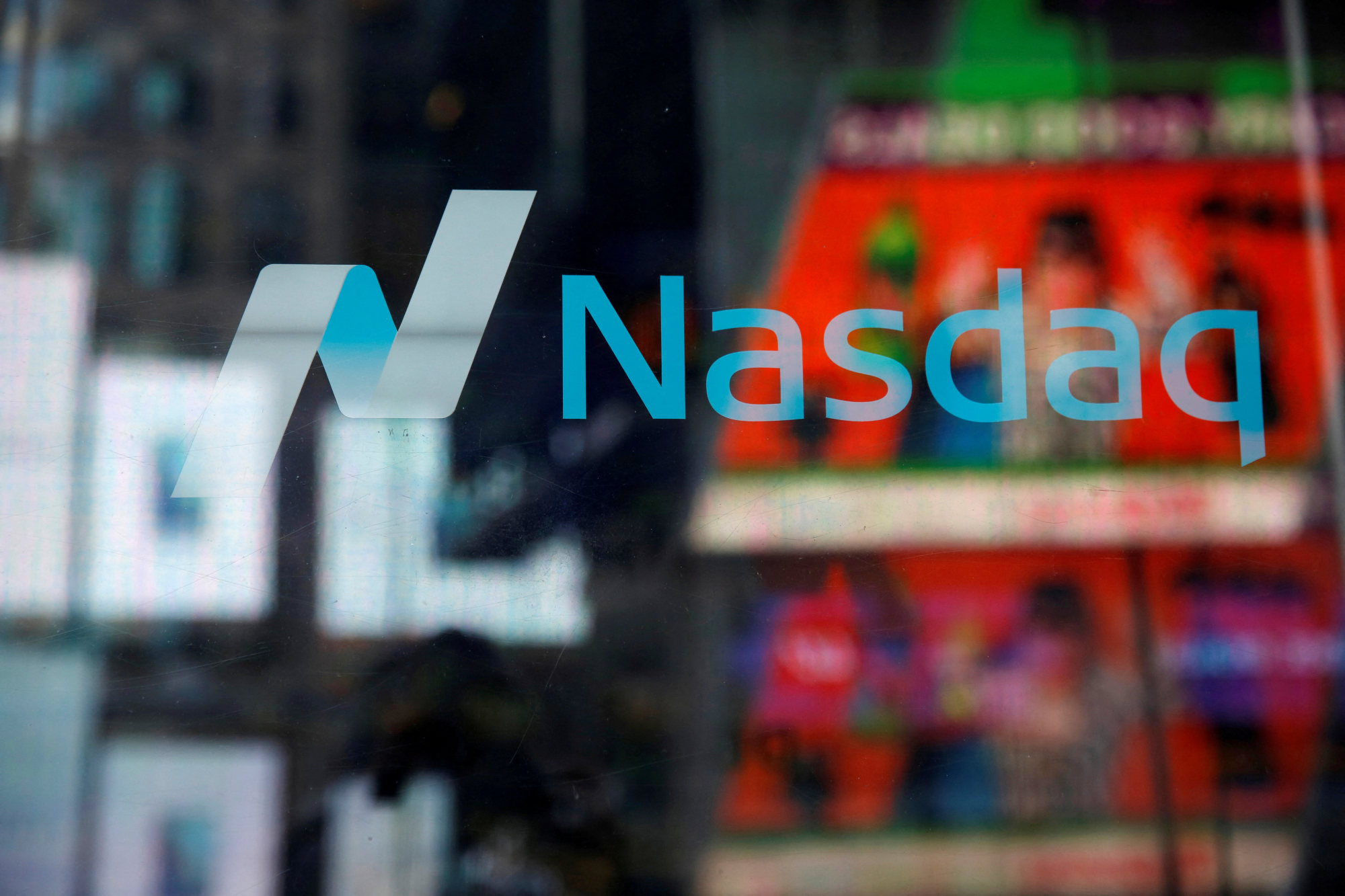
US, global stock markets fall amid heightened US-China tensions
- US markets are jittery after Asian stocks tumbled overnight; chip makers take a hit
- After Beijing announces live-fire exercises around Taiwan, experts say possible economic retaliation could lead to ‘unfavourable spillbacks for China’
US stock indexes slipped on Tuesday as investors weighed the repercussions of heightened tensions between the US and China over US House Speaker Nancy Pelosi’s visit to Taiwan, a major supplier of the world’s semiconductors.
Taiwanese chip companies tumbled, with shares of Taiwan Semiconductor Manufacturing (TSMC) and United Microelectronic slipping by 2.4 per cent and 3 per cent respectively.
US semiconductor stocks such as Nvidia, Intel, Qualcomm and Micron Technology each fell more than 1 per cent. Germany’s Infineon lost 2.3 per cent, while Dutch firms ASML, ASMI and BESI slumped between 3 and 4 per cent.

Overall, the S&P 500, which tracks the performance of the top 500 companies listed in the US, dropped by 0.67 per cent to 4,091.19. The benchmark briefly bounced back after Pelosi’s plane touched down safely, only to return to red figures.
The tech-dominated Nasdaq shed 0.16 per cent to 12,348.76. The blue-chip Dow Jones spent the day in red, losing 402.23 points or 1.23 per cent.
Mohamed El-Erian, chief economic adviser at the financial services giant Allianz, ascribed the fluctuations partly to the uncertainty associated with the latest geopolitical theatrics between Beijing and Washington.
“There is a lot of speculation on whether and how China would respond to what officials there said they would view as a provocation were [Pelosi] to visit Taiwan,” he said, adding that any financial or economic retaliation by China that affects demand and the supply side could “involve unfavourable spillbacks to China” as it faces “considerable economic and financial uncertainties”.
Official data on Monday showed manufacturing in China shrank unexpectedly in July as the country’s strict coronavirus policies hobble economic activity.
The Chinese army on Tuesday announced live-fire exercises around Taiwan, and there are fears of China disrupting shipping lanes in the Taiwan Strait, a key global trade route. According to reports, China has also imposed new import bans on over 100 products from Taiwan.
China vows military operations around Taiwan in response to Pelosi visit
Mona Mahajan, a senior investment strategist at Edward Jones, ruled out any “real economic disruption”.
“But of course, the rhetoric and the headlines start to intensify and it’s something we need to watch going forward,” she said.
The uncertainty reverberated across global markets overnight on Tuesday as Germany’s DAX and France’s CAC 40 fell by 0.3 per cent and 0.4 per cent respectively, while the FTSE 100 in London was little changed.
In China, the benchmark Shanghai Composite dropped 2.3 per cent, while Hong Kong’s Hang Seng Index fell as much as 3.2 per cent. Taiwan’s Taiex and Japan’s Topix ended 1.6 per cent and 1.8 per cent down respectively.
Pelosi’s trip to Taiwan exacerbates investors’ worries as the US economy struggles with rising inflation, fears of recession and higher interest rates. There has been a 9.1 per cent increase in US consumer prices year on year through June.
The Chicago Federal Reserve president, Charles Evans, expressed hope on Tuesday that the Fed would raise its benchmark interest rate by half a percentage point in September. San Francisco Fed President Mary Daly also signalled at rapid rate hikes to curb inflation.

